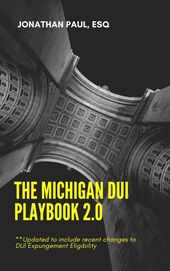Drunk Driving Michigan - Vehicle ImmobilizationCall Me: 248-924-9458Michigan Drunk Driving Boot Camp: Vehicle ImmoblizationIf you've been convicted of drunk driving in Michigan, the court may order vehicle immobilization. Vehicle immobilization could mean locking the ignition, wheels or steering device; any attempt to circumvent these devices bring additional penalties.
The cost of installation of these devices will be paid by the defendant. Having your vehicle immobilized could put a huge burden on your ability to work or your family members to have a normal lifestyle. If a police officer detains a driver for drunk driving, the officer must immediately confiscate the registration plate and destroy it, while issuing a temporary license plate, which is valid until the charges against the person are dismissed, or the person pleads guilty or is convicted at trial. For a first offense, there is a discretionary 180 day immobilization, a second offense the immobilization is between 90 and 180 days, which is mandatory, and for a third offense, there is a mandatory one to three year term of immobilization. Vehicle immobilization only applies to the vehicle involved in the offense; the court cannot order immobilization of other vehicles owned or leased by the defendant. Immobilization is required if the "defendant is the owner, co-owner, lessee, or co-lessee of the vehicle operated during the violation." [Section 904d(4)(a)] If the defendant does not have an ownership interest in the vehicle, immobilization is permitted if the "owner, co-owner, lessee, or co-lessee knowingly allowed" the offender to operate the vehicle when the driver was drunk or drugged, or when the offender's driver license was suspended, revoked, or denied, or when the offender had never applied for a driver license. This provision applies even if the offender is not convicted. [Section 904d(4)(b)] Transfer of the Vehicle, Getting Another Vehicle, and Tampering with an Immobilization Device A violation any of the following provisions is a misdemeanor, which may be punished by imprisonment for no more than 93 days, a fine of not more than $100.00, or both. An offender whose vehicle is immobilized may sell the vehicle during the period of immobilization. However, unless there is an appropriate court order, the vehicle may not be sold to a person who would not have to pay use tax under section 3(3)(a) of the Use Tax Act [MCL 205.93]. [Section 904e(2) of the Code; MCL 257.904e(2)]. This generally means an immediate family member. Speak to an attorney for clarification on this issue. An offender who is prohibited from driving because of vehicle immobilization cannot purchase, lease, or otherwise obtain a vehicle during the immobilization period. [Section 904e(3) of the Code] A person cannot do any of the following if he or she knows, or should know, that a court has ordered that a vehicle be immobilized [Section 904e(4) of the Code]: Remove, tamper with, or bypass the immobilization device. Attempt to remove, tamper with or bypass the immobilization device. Operate or attempt to operate the vehicle. |
|
|
Representing clients in Ann Arbor, Canton, Brighton, Howell, Saline, Adrian, Taylor, Plymouth, Northville, Westland, Ypsilanti, Pittsfield Township, Warren, Sterling Heights, Farmington, Pontiac, Romulus, Lansing, Novi, South Lyon, Southfield, Birmingham, Bloomfield Hills, Royal Oak, Troy, Rochester, Jackson, East Lansing, Garden City, Livonia, Dearborn, Detroit, St Clair Shores, Hazel Park, Ferndale, Madison Heights, Waterford, Milford, Shelby Township Clarkston, Oak Park, Berkley, Fraser, Sterling Heights, Clinton Township and others throughout Washtenaw, Wayne, Monroe, Jackson, Saginaw, Macomb, Ingham, Lenawee, Charlevoix, Ottawa, Clinton, Eaton, Kent, Crawford, Allegan, Emmet, Barry, Kalkaska, Berrien, St. Clair, Livingston, Oakland County & Northern Michigan
Representing clients faced with DUI/drunk driving, retail fraud/shoplifting, drug charges, MDOP, domestic violence, reckless driving, disorderly conduct, careless driving, leaving the scene of an accident, fake ID, open container, UIP, early termination probation and other misdemeanor and felony charges. |
Ann Arbor Office LocationPlymouth Office Location |



